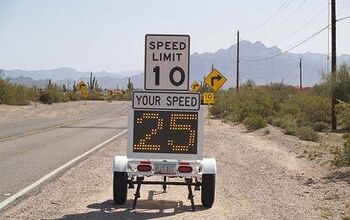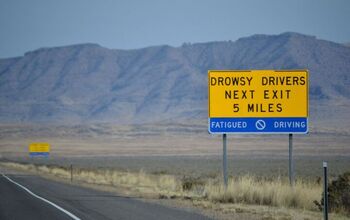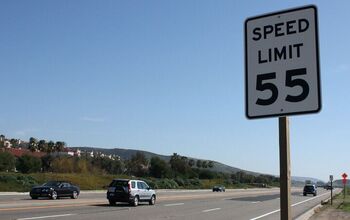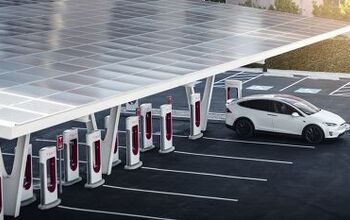QOTD: Warranty Limits

We told you the other day about a Toyota owner who is upset a damaged engine won't be covered under warranty after he drove his car on the track.
We've also covered an issue in which Ford Bronco owners complain that a factory feature has damaged their vehicles after off-road use -- and that Ford is denying warranty claims.
The Toyota driver points out that Toyota holds track events for GR86 owners, while the Ford complainants made it known that Ford implies that using the Trail Turn Assist feature in a manner consistent with the directions in the user's manual would not void the warranty. Putting aside legalese and any explicit wording in an owner's manual, the Toyota GR86 is marketed as a track-ready car and the Bronco is marketed as an off-roader. Philosophically speaking, should OEMs deny warranty claims when a vehicle is used for a purpose it's designed for?
I realize there's probably a "know it when you see it" standard here. A lot of crossover owners could take their vehicles to a difficult off-road trail, experience damage, and then cry foul, claiming their soft-roader SUVs are marketed using commercials that show folks playing in the outdoors. Similarly, anyone who owns a slightly sporty vehicle could argue that ads showing cars drifting on track means their ride can handle a few hot laps of Road America or Laguna Seca when it clearly cannot.
But, of course, some vehicles are more equipped than others for heavy-duty off-road or track use, and it's generally clear to any reasonable observer that there's a difference between sports cars that can easily handle a curvy road and sports cars that are track-ready. And a difference between crossover SUVs that can take you over some two-track to a trailhead and SUVs that can actually handle the Rubicon.
If it's not clear, well, automakers use plenty of legal copy to cover their butts.
So if the owner of say, a Kia Seltos tried to fight a warranty claim after damaging their car while trying to rock climb in Moab, we'd all side with the automaker. But when it's the Ford Bronco, which is actually built to be able to handle difficult off-road trails and even offers features that are meant to make off-roading easier, shouldn't the OEM be willing to take accountability when those features seemingly cause damage during off-roading?
Similarly, if the car is meant to be able to lap a track without any serious modifications, shouldn't the OEM pony up if the equipment fails, and it's not obviously the driver's fault? If the GR86 driver had blown his engine by failure to shift, OK, fine, that's on him. But if his driving was basically competent and he did nothing to damage the engine, he might have a valid claim.
I'll finish this by noting that even cars designed to go on track or off-road from the factory do have limits. But it doesn't seem like basic off-roading or a standard "run what you brung" track day would be beyond the ability of these cars.
What say you?
Sound off below.
[Image: Eakrin Rasadonyindee/Shutterstock.com]
Become a TTAC insider. Get the latest news, features, TTAC takes, and everything else that gets to the truth about cars first by subscribing to our newsletter.

Tim Healey grew up around the auto-parts business and has always had a love for cars — his parents joke his first word was “‘Vette”. Despite this, he wanted to pursue a career in sports writing but he ended up falling semi-accidentally into the automotive-journalism industry, first at Consumer Guide Automotive and later at Web2Carz.com. He also worked as an industry analyst at Mintel Group and freelanced for About.com, CarFax, Vehix.com, High Gear Media, Torque News, FutureCar.com, Cars.com, among others, and of course Vertical Scope sites such as AutoGuide.com, Off-Road.com, and HybridCars.com. He’s an urbanite and as such, doesn’t need a daily driver, but if he had one, it would be compact, sporty, and have a manual transmission.
More by Tim Healey
Latest Car Reviews
Read moreLatest Product Reviews
Read moreRecent Comments
- Dwford Will we ever actually have autonomous vehicles? Right now we have limited consumer grade systems that require constant human attention, or we have commercial grade systems that still rely on remote operators and teams of chase vehicles. Aside from Tesla's FSD, all these systems work only in certain cities or highway routes. A common problem still remains: the system's ability to see and react correctly to obstacles. Until that is solved, count me out. Yes, I could also react incorrectly, but at least the is me taking my fate into my own hands, instead of me screaming in terror as the autonomous vehicles rams me into a parked semi
- Sayahh I do not know how my car will respond to the trolley problem, but I will be held liable whatever it chooses to do or not do. When technology has reached Star Trek's Data's level of intelligence, I will trust it, so long as it has a moral/ethic/empathy chip/subroutine; I would not trust his brother Lore driving/controlling my car. Until then, I will drive it myself until I no longer can, at which time I will call a friend, a cab or a ride-share service.
- Daniel J Cx-5 lol. It's why we have one. I love hybrids but the engine in the RAV4 is just loud and obnoxious when it fires up.
- Oberkanone CX-5 diesel.
- Oberkanone Autonomous cars are afraid of us.


































Comments
Join the conversation
I hate all kinds of insurance, and I am far better off with SELF INSURANCE. Only crooks benefit from insurance.
WARRANTY is just another form of insurance, but one that most fools that get it think it is FREE. IT SURE AS HELL IS NOT. This is why you used to pay so much more for a new than for a used car (with notable exceptions for rare exotics, yes, I know). Oh, and if you have one ounce of brains (and you USE it) you would see that WARRANTY COMPANIES MAKE PROFITS TOO. OFF YOU, STUPID, if you buy their crappy policies.
I have a colleague who buys certified used luxury SUVs, Lexi and Mercs. The last time he shelled out another $5,000 to buy some stupid extended warranty. Whadda you know, a few months later he had a BIG repair bill. Guess what his precious extended warranty covered: N O T H I N G!
SO if you are not destitute, SELF INSURANCE is best. and NO WARRANTIES. Pay only when you HAVE TO.
And if you are smart enough to chose TRULY reliable cars, you will SELDOM have to.
I've only skimmed these stories so I may have missed it, but has anyone read their warranty? I'm sure racing is listed as not approved. How about actual race cars sold by the factory?